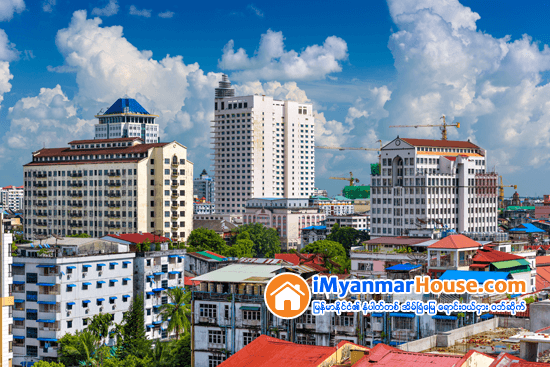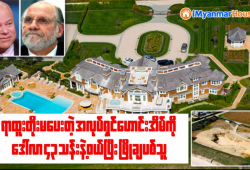
Local Property News | Posted by Shwe Zin Win
Foreign investment in the real estate sector far outweighs local investment, according to data from the Directorate of Investment and Company Administration (DICA) analysed by the Myanmar Real Estate and Construction Monitor.
It is worth noting that, so far, Myanmar Investment Commission (MIC) approvals for foreign investment in real estate have dwarfed the value of investments approved for local citizens.
The Myanmar Real Estate and Construction Monitor notes that this differs from many other Asian markets, where foreign approvals are only a small portion of the overall real estate market.
As of March, the MIC had permitted real estate investments by locals worth a total of $1.2bn since tracking began in 1988, compared to $5.3bn in foreign investment.
Citizen investments as of March were divided into $776m in hotels and tourism and $506m in the construction sector, while approved FDI reached $3.1bn and $37m in the respective sectors.
Real estate represents the largest chunk of local approvals, with a total of 22.4% of all MIC approvals for local investment since 1988.
There are a total of 11 categories tracked by the MIC, with the next largest being manufacturing, at 18% of total approved value.
In terms of foreign investment, however, real estate only represents about 7% by value of all MIC approvals, followed by hotels and tourism with approximately 4%.
The largest chunk of approvals is for oil and gas, followed by the power sector.
The boom in foreign investment can be explained by a series of reforms pushed by the previous military-led government from 2011 to encourage FDI and liberalise the economy, as well as by the country's gradual democratic transition since the National League for Democracy (NLD) took control in April 2016.
The new Myanmar Investment Law (MIL), passed by the Union parliament and signed by the president in October 2016, contributed significantly to the ability of large-scale international investors and developers to gain direct access to the real estate sector.
A common form of contract in recent years has been the build-operate-transfer (BOT) model.
However, the Myanmar Real Estate and Construction Monitor understands that the government is now looking to shift more towards public private partnership (PPP) schemes, which can be more transparent and financially beneficial to both parties.
Under the MIL, foreign companies can operate as an investor in a variety of sectors, either as a wholly foreign entity, through a joint venture with a Myanmar national or corporation, or under a contract.
Furthermore, foreign and local investors can enjoy three-, five-, or seven-year tax exemptions and benefits for major projects approved by the Union government.
FDI approvals are a potential indicator of much bigger future real inflows into real estate. Former MIC secretary U Aung Naing Oo has previously said he expects approved real estate FDI to continue rising.
However, the legal framework still remains a major issue and many international investors remain concerned about the extent to which their investments will be protected in the country's current political and economic context.
Credit: Myanmar Real Estate









